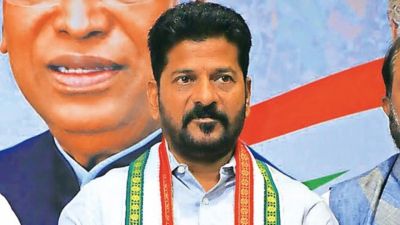US growth spurt mitigates uncertainty for India
After having helped the government frame economic policies in exceptional times that brought the global financial system to its knees...
After having helped the government frame economic policies in exceptional times that brought the global financial system to its knees,the finance ministrys chief economic advisor is moving on to assume his new role as an executive director to the IMF. A day before he leaves office,Arvind Virmani,who was appointed CEA in July 2007,tells Gunjan Pradhan Sinha that the US growth spurt in the third quarter will accelerate the revival of domestic investment. Excerpts:
With the US clocking positive growth numbers for the first time in months,how do you think it will change the scenario in India and the world?
Over the past three- four months we have got indications that recession in the US is coming to an end. The recent news confirms only one fact that the future wont be worse. Even though it is a larger than expected bump up,recovery will follow the pattern of wavy and stretched out U for the global economy. For India,it spells out mitigation of the uncertainty which crept in due to the external environment. In my expectation,it will accelerate revival of domestic investment and the economy will be less dependent on stimulating forces.
And for the rest of Asia?
Countries heavily dependent on exports would not see a fast paced recovery compared to India. Until they change their orientation,a number of nations including China would have to wait before investment levels pick up. A stimulus approach is a short term measure,it cannot be sustained for long. India is at an advantage as it has a neutral export policy and huge domestic demand.
How do you see inflation panning out in the next few months?
I expect the gap between whole sale price index inflation and consumer price index -industrial workers to narrow. CPI should peak and then start waning. There are already faint glimmerings of this. It could be peaking now. Inflation is expected to go up but not as much as CPI (IW). It will hover around 6 per cent in March 2009-10.
With talk of right timing for withdrawing fiscal stimulus measures,what is your view for the Indian economy?
The fiscal stimulus has two aspects micro and macro. Micro measures such as interest rate subvention given to certain sectors have time limits. In that sense they have an automatic expiry. For the macro level measures that widened the fiscal deficit,there are indications that we need to go away from it. The FRBM document for the current fiscal sets targets for the next two or three years,which in all likelihood would be met. The winding down will start and by March the picture will be clear.





- 01
- 02
- 03
- 04
- 05


























